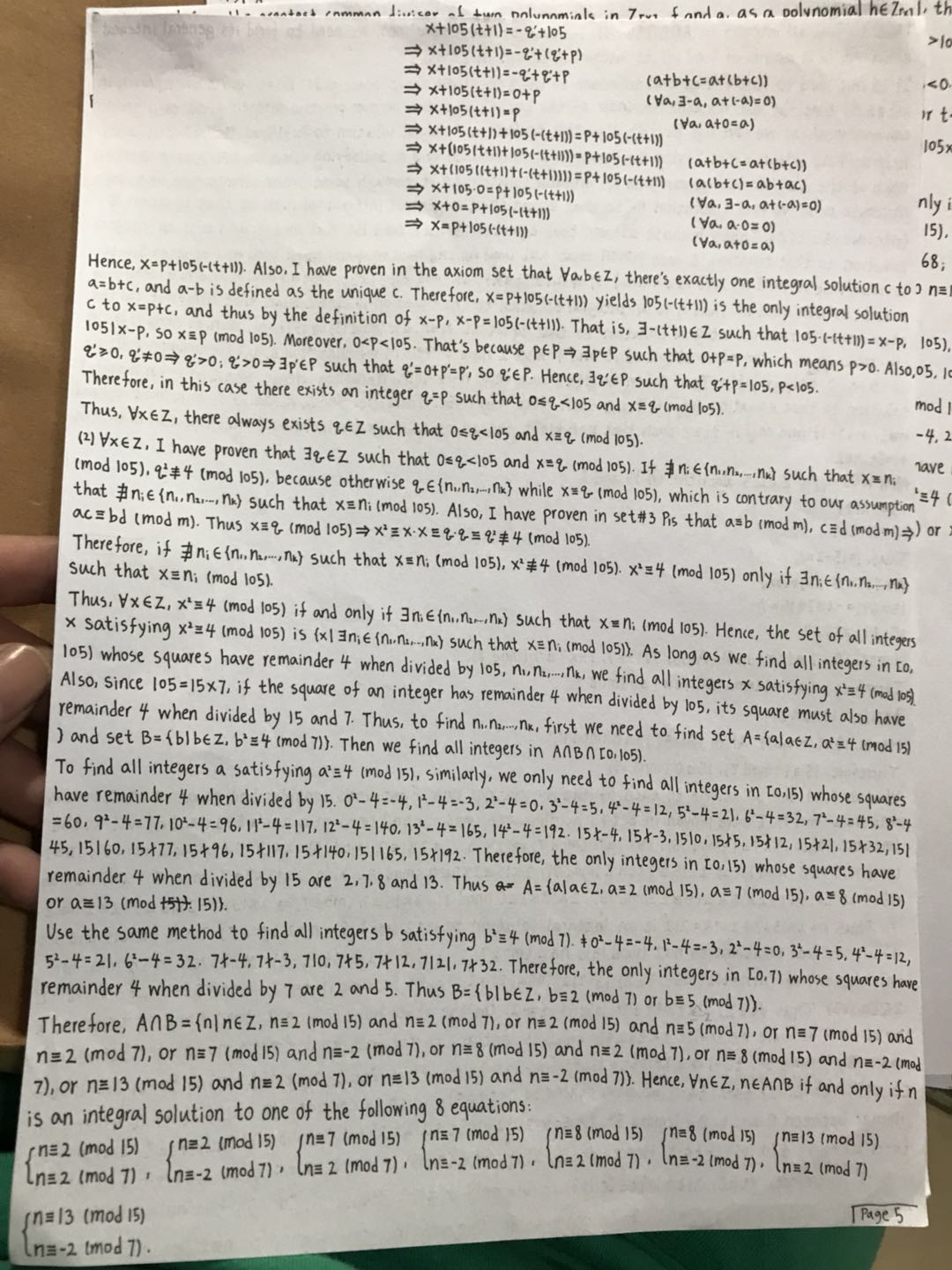News & Event
Thoughts on my Experience at Ross/Asia

Emma Chen
11 September
2018 HFI
Ross mathematic program (USA/Asia) is a prestigious math summer school that teaches number theory. In Y10, I was introduced to this program. Since I loved math and I did want to learn more about number theory, which I was not so familiar with compared to other branches of math, I applied for it with no hesitation. Luckily, I was accepted by Ross/ Asia and participated in it this summer.

It really was a amazing and special experience for me. The way we study math at Ross is completely different from the way at school. At school, the purpose for studying math is to cope with exams, or prepare for mathematic competitions. Therefore, at school, the focus of mathematics learning is problem-solving skills. You must work on extensive amount of similar problems everyday so that you will be proficient enough in solving those kinds of problem to get the answers quickly and correctly in exams (competitions). In Ross, however, the focus is to develop the ability to think deeply about extremely difficult and meaningful math problems as well as the willingness and patience to struggle for them. Every week day there’s a one-hour lecture on number theory. Then you get a problem set on the topic of the lecture. Those problem sets are very different from the ones we work on at school. First, there’s no way you can find patterns of solving those problems, because each problem set unique. Also, what’s important is not to get the answers quickly. In contrast, it is to struggle to solve the problems that you can’t work out. When getting stuck on a problem, you have to constantly observe many different examples and look for patterns until you find out the patterns and finally fully understand the essence of the patterns and thus solve the problem. However, you will feel that it is worth the time because on the lectures the professor would explain how the major problems on the sets are raised, and why do mathematicians find them meaningful.

Simply put, schools tell you how to work out a problem that already has an answer, while Ross is getting you ready for doing mathematics research by teaching you how to study a problem, and how to judge whether a problem is worth studying. To be honest, such unique way of studying math shocked me a little bit at first. It led me to think about why this program choose to teach participants math in this way. Would Ross be more helpful for participants with math if it focuses on training problem-solving skills? Is it too early for high school students to prepare themselves for doing mathematics research? As I spent more time at the camp, I finally figure out.

Admittedly, for high schoolers, it was very difficult to learn what it is like to do mathematics research. At Ross we often spend hours struggling painfully for a problem. However, the pain is necessary because actually one should start getting used to research oriented mathematics learning since childhood. First, to learn math well, it is very important to know how to do mathematics research. Solving problems that already have answers might be good practice, but that does not let one make contribution to math. One only makes contribution to math by raising, and unraveling meaningful mathematics problems that not yet have answers. Problem-solving skill helps to achieve that, of course. Moreover, if a student has always been used to exam-oriented mathematics learning and seldom been exposed to mathematics research before college, he or she is likely to have lots of troubles adapting to the new way of learning. In exams and contests, someone gives you many problems to do. Those problems all have answers already. Also, they are designed that with lots of practice, you can know what pattern to use to get the answer as soon as you see the question. When doing mathematics research, however, no one gives you problems. You have to find a good problem that not yet has an answer by yourself. Moreover, since the problem is unsolved, there are multiple possibilities of how to solve the problem. Sometimes you are so lucky that some works by predecessors inspire you to solve it, but sometimes you are so unlucky that you have to create a new conceptual system to solve it. That’s why a mathematics research might take you months, years or even the whole lifetime. Thus, if your brain is used to the exam-oriented mode— someone else give you problems, you read each prompt, and then apply the pattern that matches the prompt to get the answer—and you do not adapt to the research-oriented mode as soon as possible, when you go to college, your brain has already been finalized and it would be extremely difficult for you to have the ability and patience to do mathematics research. It is not that problem-solving skills is not important, but that should not be the focus of children’s mathematics learning.

Hence, Ross should really be appreciated for providing an excellent platform for high school math lovers to warm up before doing mathematics research at college. Even students who do not plan to be mathematicians in the future can benefit a lots from Ross, because no matter what career you choose, if you want to contribute something innovative to your working field, the ability to judge whether a problem is valuable and the spirit of exploration, which you can gain from Ross, are necessary.



 International Department, The Affiliated High School of SCNU
International Department, The Affiliated High School of SCNU





